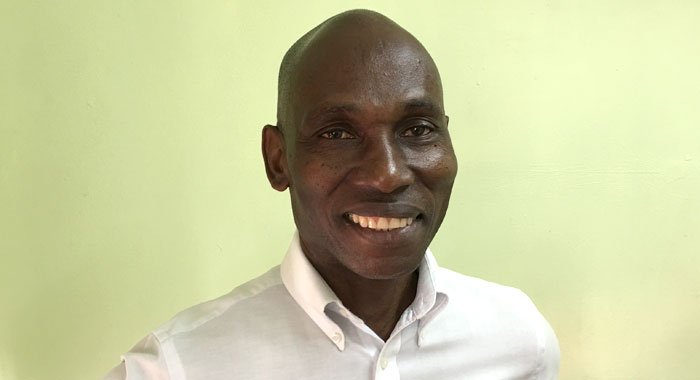
In this Covid era when workers are thrown to the wolves, an age when workers and citizens are told they will find no legal protection in the laws, not even the lofty constitution, it is a refreshing breath of fresh air to see at least one regional Judge, standing tall, asserting and defending workers rights against an onslaught from governments and private business interest.
At the opening of the 2021/20220 law term in Trinidad and Tobago, Deborah Thomas-Felix told listeners that employers are not allowed by law to unilaterally make decisions and mandate employees to subject themselves to receiving Covid-19 vaccine.
Thomas-Felix, President of the Industrial Court, warned employers that if such a decision is to be made, there must be consultation between the employer and the employees or their representative bodies, and both sides must come to an agreement.
The firmly held opinion of President Thomas-Felix, which she has often reiterated in the last year, flies in the face of contrary opinions of top legal luminaries (Rose Marie Antoine and Sir Denis Byron) and political leaders best exemplified by the strong views of Antiguan PM Gaston Brown and our Ralph Gonsalves. They have maintained that the Covid crisis allows governments and businesses to disregard the rights of citizens to free choice, and to impose mandatory vaccinations.
Justice Thomas-Felix was clear in asserting that she was not indicating citizens should not receive the vaccine as a protective measure against the virus. However, Thomas Felix said employees had a right to choose whether or not they would be subjecting themselves to the jab.
More importantly, Justice Thomas Felix maintained that workers ‘cannot be fired from their jobs or be subjected to any adverse consequences from their employers.’
‘Can such a policy be introduced unilaterally by employers in the workplace? The short answer is no,’ she stated.
The Judge also pointed out that employers were not allowed by law to require employees to take money out of their own pockets to conduct PCR testing on themselves to prove to their bosses they are Covid-19 negative.
That is within the remit of the employers since they are the ones mandated to provide a safe working environment for their employees and members of the public, she said. The government of SVG is demanding that employees pay for their test to prove a negative status.
Justice Thomas-Felix pointed out that while the laws of Trinidad and Tobago do not directly address Covid-19 vaccinations as a condition of employment, she said new vaccination policies can be achieved via collective bargaining.
‘It is settled law that an employer ought not to make any material change or alteration to a worker’s contract unilaterally. The introduction of a Covid-19 vaccination policy or any new policy can amount to a material change in the terms and conditions of employment and ought not to be imposed unilaterally,’ she argued.
Thomas-Felix expressed alarm at the number of industrial relations complaints filed in the court since the Covid pandemic was declared, saying it was of great concern to her.
She noted that from March 2020 to September 14, 2021, a total of 178 Covid-19 complaints had been filed, the majority resulting from a lack of consultation between employers and employees. Similar filings have been made here in SVG with the Labour Department.
Thomas-Felix emphasised that each individual was responsible for what goes into their bodies, and they cannot be ‘forced’ into accepting a vaccine they did not wish to have.
Had it been so simple, she said, countries worldwide would have made it mandatory for their citizens to subject themselves to the Covid-19 vaccines. But that is not the case.
Instead, the Judge said other countries were educating their populations about different vaccines, the importance of taking them and encouraging citizens to get vaccinated. And that is as much as a government can do at this time, she said. Barbados’ Mia Mottley has maintained that her government was philosophically opposed to mandatory vaccination.
Thomas-Felix said the World Health Organisation (WHO) has advocated against making vaccinations mandatory because of the distrust associated with such a decision, and the International Labour Organisation (ILO) has issued recommendations on the topic.
Thomas-Felix said for employers to discharge their legal duty to provide a safe work environment, steps can be taken to minimise the risk of Covid-19, such as ensuring employees wear masks, providing hand sanitiser, promoting and maintaining physical distancing, ensuring surroundings are clean and requiring employees with symptoms to stay at home and seek treatment.
The implemented measures must be case by case specific because what works at one place of work are not automatically applied to another, she added.
This is where comprehensive bilateral consultation plays a critical role, she added, pointing out that ways to address new issues at the workplace can only be taken after consultation.
‘So too should the training needs of workers, especially training and education on vaccines. If a risk-assessment policy is considered and contemplated by a company, the union should be consulted at the very initial stages, and collective bargaining should commence.
If there is no union at the company, there will be a need for discussions and dialogue, not monologues, with workers.’
Thomas-Felix said, ‘I cannot overstate the importance of discussions, genuine consultations and compromise, built through social dialogue, for the effective implementation of measures to address this pandemic and its impact on the labour market.’
Thomas-Felix pointed out it was important for employers and trade unions to adjust to the new way of life ‘in a spirit of respect and compromise’ for the survival and sustainability of lives, businesses and jobs.
The Judge said she was troubled by unilateral decisions made by some employers. ‘The devastating effects (of lack of consultation) and the need to combat the spread of this pandemic assume far greater importance than the assertion of these individual rights.’
At a time when all appears to be lost, when workers seem to have been abandoned, Justice Thomas-Felix offers a glimmer of hope. As the veteran trade unionist reminded us, ‘Dare to struggle, dare to win.’






1 Comment
Thomas-Felix president of Industrial Court of T&T seems to have created some problems for PMs like Ralph Gonsalves, who wants to make the jab mandatory. She has emphasised the right of the individual to choose what goes into his or her body. So, governments and employers should not just decide that workers must have the jab. They have to consult with workers. But this is the seen in T&T. Is it applicable to other countries CARICOM? And could CARICOM agree on a policy of vaccination for the group of countries? Perhaps a silly question.